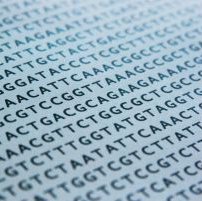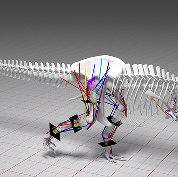Research IT News
Tier-2 HPC Applications Open Now


EPSRC is offering open access to five new Tier-2 High Performance Computing facilities through a call for proposals. Free access to the facilities is through a two stage peer review process with an initial closing date of the 21st of September. There will only be three calls a year for access to the facilities.
Introducing Research IT


Research IT is here year round for researchers but the start of year is still busy for us. Research IT will be out and about during September giving presentations to new research students who have joined the university. The presentations cover the main services that we offer researchers and highlight our training and networking opportunities.
New MS Windows Computational Resource


Research IT have developed and supported Linux-based computational resources for many years - both batch/queue based (e.g., the CSF, Condor Pool and also the regional platform, N8 HPC) and interactive (the iCSF), but up until now there has been no viable MS Windows-based service.
USA - UK Travel Grants for Research Software Engineers


The first two awards from the EPSRC USA-UK Research Software Engineer Travel fund have just been announced and Martin Turner from Research IT has been fortunate enough to receive one them. The funding aims to encourage greater collaboration between the UK and USA-based Research Software Engineer communities to help with: investigating emerging hardware and the impact on software; building collaboration around a particular science area; developing common community codes; and building links between computational / computer science and mathematics.
Research Lifecycle - Call for Participation


The Research Lifecycle project is a programme of work to deliver and embed systems and processes that enable and support researchers through the entire lifecycle of their research project from the conceptual phase through to the publication and archiving. This work will support the M2020 goal 1 of “World Class Research”. The project team are now looking for researchers who would like to contribute to the project through a short interview.
UK HPC Skills Survey


UK BioBank Data Repository Available Now


We are pleased to announce that the UK BioBank Genotyping and Imputation Data Release (data for all 500,000 participants in UK BioBank) is now available for use on central compute platforms (the CSF, DPSF and iCSF). It is also available as a storage share that can be mapped as a network drive on campus PCs / desktops.
New Drop in Sessions Announced


Planning for the start of the new academic year is well under way in Research IT - we have just confirmed our next set of dates for our drop in sessions. These sessions are specially designed to help quickly answer any queries, questions or issues you may be having with research IT including software, data visualization, research data management, sysadmin and much much more. We can also help advise on how to include Research IT services in your grant bid proposals and how to cost for research outputs such as websites, code sharing, database distribution etc.
How fast can a T. rex run?


Dr William Sellers from the School of Earth and Environmental Sciences has been hitting the headlines with his discovery that Tyrannosaurus rex was unable move faster than a gentle jog, let alone run. The research looks extensively into the gait and biomechanics of the world’s most famous dinosaur and, using the external HPC resources accessed through and supported by Research IT, has created a new simulation model to test its findings.
Mathematica Summer Workshop Roundup


Research IT recently hosted, in cooperation with Wolfram, the first Mathematica Summer Workshop. In our case "summer" only referred to the time of year and certainly not the temperature!
Mathematica is a multi-purpose scientific environment used by many researchers here at the University of Manchester. It is very good for rapid development and exploration of data, providing a convenient notebook like interface. Alternatively you can create presentations with embedded Mathematica equations as most of our presenters did. However, you certainly need to know a few tricks before getting started and that was what we aimed to provide through this workshop.
Wanted: Volunteer Instructors for CodeFirst


Each semester CodeFirst runs free community courses aimed to provide women with technical and digital skills. The courses are taught by volunteer instructors all across the country and this October they are coming to the University of Manchester.
They are looking for a diverse range of enthusiastic volunteer instructors for the upcoming autumn sessions. Instructors come from a variety of cultural and coding backgrounds, and include computer science/technical postgraduates, company based professionals, freelance developers, and university staff. All instructors work on a voluntary basis.
Introducing the Research Lifecycle


A guest blog post from Angus Hearmon, Head of Research IT, who introduces the Research Lifecycle project and explains what it means for researchers across the university.
The Research Lifecycle project is a program of work to deliver and embed systems and processes that enable and support researchers through the entire lifecycle of their research project from the conceptual phase through to the publication and archiving. This work will support the M2020 goal 1 of "World Class Research".
